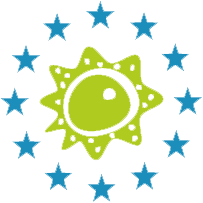Eurosurveillance seminar: Diversity and inclusion in research and scholarly publishing
Diversity and inclusion are important principles to ensure equity and reduce inequalities, also in infectious disease and public health research and when reporting its outcomes. As signatory of the United Nations Sustainable Development Goals (SDG) Publishers Compact, Eurosurveillance is committed to taking action on SDG 3 ‘Good health and well-being’, SDG 5 ‘Gender equality’ and SDG 10 'Reduced Inequalities’. The 2024 seminar will address aspects related to sex and gender and geographical representation when generating and reporting scientific findings.
Date and time
21 November 2024 12.30-14.00 CET
Agenda
12.30–12.40 Opening of the seminar ‘Diversity and inclusion in research and scholarly publishing’ (Ines Steffens & Matthew J Kuehnert)
12.35 Vegetarian lunch served in the room
12.40–12.45 Welcome note, Piotr Kramarz, ECDC Chief Scientist, Eurosurveillance Associate Editor, Sweden
12.45–13.10 'Towards gender-responsive and inclusive research: leveraging the SAGER guidelines for better science', Shirin Heidari, Geneva Graduate Institute, Gender Centre & GENDRO, Switzerland
13.10–13.35 'Diversity, Equity and Fairness in the Field: translating the Cape Town Statement into practice', Gowri Gopalakrishna, University of Maastricht, The Netherlands
13.35–13.55 Panel discussion including Q&A
13.55-14.00 Wrap-up and close (Ines Steffens & Matthew J Kuehnert)
Moderators
Ines Steffens
Ines Steffens is the editor-in-chief of Eurosurveillance since 2011, published by the European Centre for Disease Prevention and Control (ECDC). Ines joined ECDC in 2006 initially as managing editor of the journal. In addition to heading the Eurosurveillance editorial team she was Head of the Scientific Communication (2007‒2010), and Internal Communications and Knowledge management (2011‒2016) sections. During her time as editor-in-chief, Eurosurveillance emerged as one of the leading journals in the field of infectious diseases and it is widely recognised as providing sound and authoritative evidence for timely public health action and for public health policy making. Before joining ECDC, Ines was editor-in-chief for Germany’s national epidemiological and public health bulletin, the Epidemiologisches Bulletin (2003‒2006), published by the Robert Koch Institute in Berlin. She is a trained internist, with 13 years of broad clinical experience and expertise in infectious diseases. She holds a master’s degree in public health, and a diploma in tropical medicine. She has been an active member of the European Association of Science Editors (EASE) since 2009. From she was EASE Vice President (2018 – 2021) and since 2021 she is the Chair of the EASE Nordic Chapter. She was part of the group that established the EASE Gender Policy Committee in 2012 and created the SAGER (Sex and Gender Equity in Research) guidelines published 2016.
Matthew J Kuehnert
Matthew J Kuehnert is deputy editor-in-chief of the journal Emerging Infectious Diseases (EID). EID is a highly cited, peer reviewed journal published monthly by the Centers for Disease Control and Prevention (CDC) and promotes the recognition of new and reemerging infectious diseases around the world. EID is a fully open access journal in the public domain. All content is freely available without charge to authors, readers, or their affiliated institutions. Matthew completed his undergraduate education at the University of California at San Diego and received his medical degree from Columbia University’s College of Physicians & Surgeons. He trained in Internal Medicine at Stanford University and the University of California at San Francisco, and in Infectious Diseases at Emory University. Beginning with two years in the Epidemic Intelligence Service, he served 20 years in the United States Public Health Service at CDC, focusing on healthcare associated infections; first on antimicrobial resistance, and later on transfusion and transplant transmitted infections. Trained as an infectious disease physician, he is now a Professor at Hackensack Meridian School of Medicine, and is a fellow of the American College of Physicians and the Infectious Diseases Society of America.
Speakers
Gowri Gopalakrishna
Gowri is an epidemiologist by training who has had various roles as an epidemiologist in big pharma, NGO and government in Asia and Europe before commencing her PhD in 2011. She has been involved in the control and prevention of the SARS epidemic of 2003/04 in Singapore and later, was one of the contributing voices in the Netherlands on the COVID-19 pandemic providing review and critique to the national prevention and control measures of The Netherlands as well as on the quality of COVID-19 research being produced. She was principal investigator of the Dutch National Survey on Research Integrity from 2018-2022 and has various roles contributing to research integrity and ethics globally. Her current research focuses on research integrity, open science and reproducibility and building capacity in this in Africa.
Shirin Heidari
Shirin is the director of GENDRO, a non-profit association promoting sex and gender responsive research. In addition, she is a Senior Researcher at the Gender Centre, the Geneva Graduate Institute. Previously, she served as the Executive Director of Sexual and Reproductive Health Matters and Editor-in-chief of its peer-reviewed journal. Before that, she led the Research Promotion Department of the International AIDS Society and was the Executive Editor of the Journal of the International AIDS Society (JIAS). Shirin received her doctorate at Karolinska Institute in 2001 and continued as an HIV researcher until her move to Geneva in 2007.
She founded and co-chaired the EASE Gender Policy Committee and led the development of the widely cited Sex and Gender Equity in Research (SAGER) guidelines. She has been an elected board member at Amnesty International, Sweden, served as a commissioner to the Lancet Commission on Women, Power and Cancer, and is currently co-Vice-President of the Foundation Board of the Geneva International Film Festival and Forum for Human Rights (FIFDH). She has been a TEDx speaker and author of several publications. She was recognized as one of the influential figures shaping the future of International Geneva in 2022.

